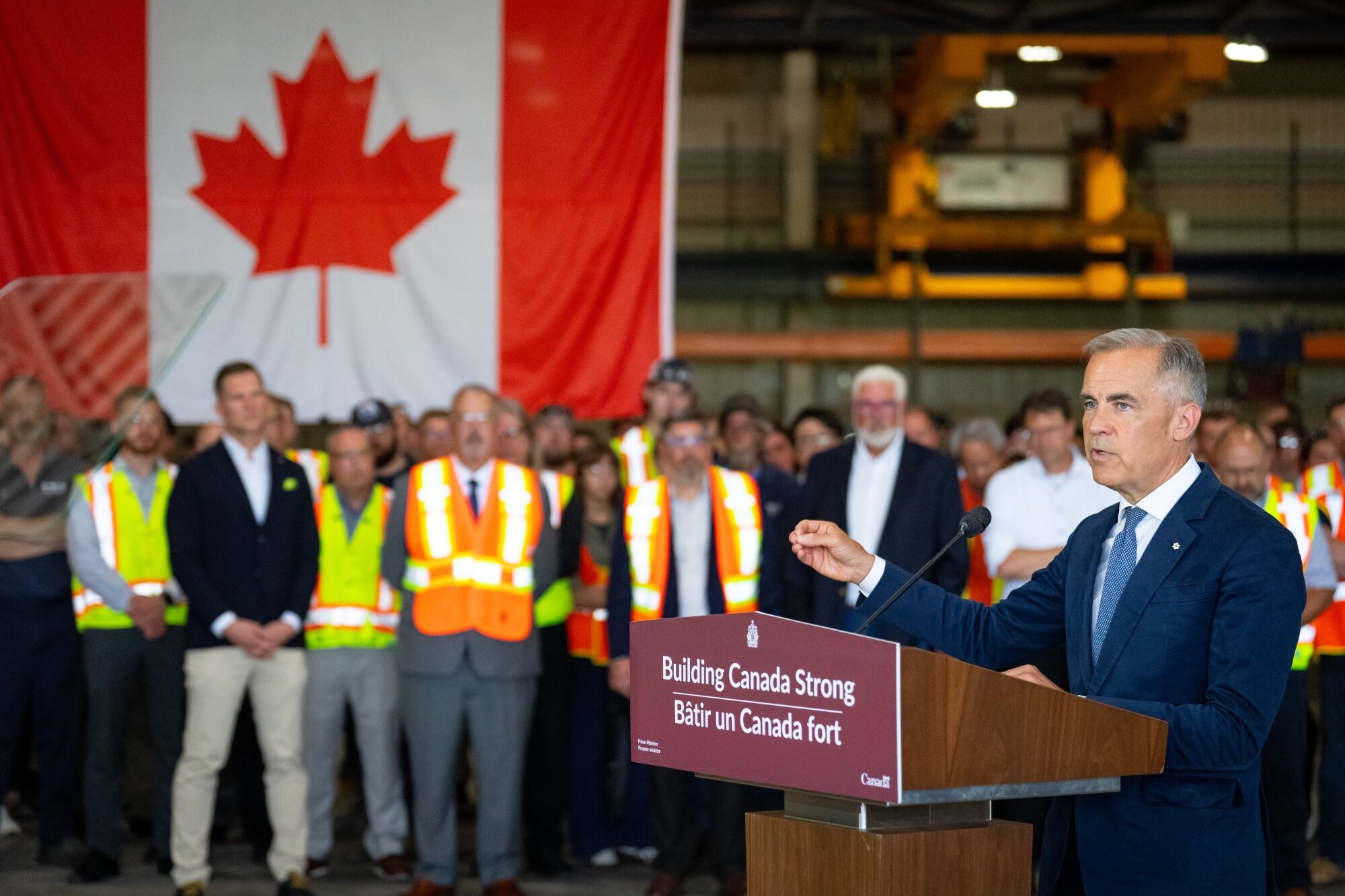Carney Cools Trade Hopes, Warns Against Poor Deal

Canada's Approach to US Trade Talks
Canada’s prime minister, Justin Trudeau, has been cautious in his approach to trade negotiations with the United States, emphasizing that the country will not accept a deal that is not in the best interest of Canadians. During a press conference in Huntsville, Ontario, after meeting with provincial leaders, Trudeau stated that the goal is not simply to reach an agreement at any cost.
Trudeau noted that the Trump administration's objectives are constantly changing, making the negotiation process complex. Despite this, the Canadian government remains committed to reaching a deal by August 1st, the deadline set by President Donald Trump for imposing tariffs of 35% on certain Canadian goods not covered under the existing North American free trade pact.
The current situation involves steep American tariffs on steel, aluminum, and autos. Canada argues that these levies violate the US-Mexico-Canada Agreement (USMCA), which Trump signed during his first term. The ongoing tensions have led to increased scrutiny of trade relations between the two nations.
Dominic LeBlanc, Canada’s lead cabinet minister on US trade, is scheduled to meet with officials in Washington later this week. However, details about the meetings remain undisclosed, as a spokesperson for LeBlanc declined to provide specific information on who will be involved.
If no agreement is reached by the beginning of August, Trudeau said Canada will reassess the situation. However, he did not explicitly confirm whether the government would take formal retaliatory actions. So far, Canada has not matched the recent increase in US steel and aluminum tariffs to 50%. Nevertheless, Trudeau has promised to adjust Canada’s counter-tariffs on US metals based on the progress of negotiations, implying a potential increase from the current 25% if no deal is reached.
In addition to focusing on trade negotiations with the US, the Canadian government is also looking to strengthen trade relationships with non-US partners. Trudeau mentioned that other countries are showing increased interest in doing business with Canada, indicating a broader strategy to diversify trade partnerships.
Provincial leaders have also expressed skepticism about the likelihood of reaching a deal by the August 1st deadline. Tim Houston, the premier of Nova Scotia, emphasized that focusing too much on the date might compromise Canada’s leverage in negotiations. He suggested that prioritizing the best possible deal is more important than adhering to a strict timeline.
Trump has made several demands on the Canadian government, including enhancing border security, increasing military spending, eliminating the digital services tax, and removing protections for the agriculture sector. While Canada has addressed the first three issues, Trump has continued to threaten higher tariffs.
Quebec Premier Francois Legault acknowledged the challenges of the negotiations, stating that while an ideal deal would be preferable, it is unclear what Trump ultimately wants. “You almost need to ask Donald Trump, and I’m not even sure he knows himself what he wants,” Legault remarked.
Canada and the United States maintain one of the largest trading relationships globally, with over $900 billion in goods and services exchanged last year. Canadian consumers and businesses purchase more from the US than from any other country, according to data from the US Commerce Department.
However, the relationship has become increasingly strained since Trump’s election, particularly following his suggestion that Canada should become the 51st state—a proposal that is widely opposed by Canadians. Despite these challenges, both countries continue to navigate their complex economic and political dynamics.